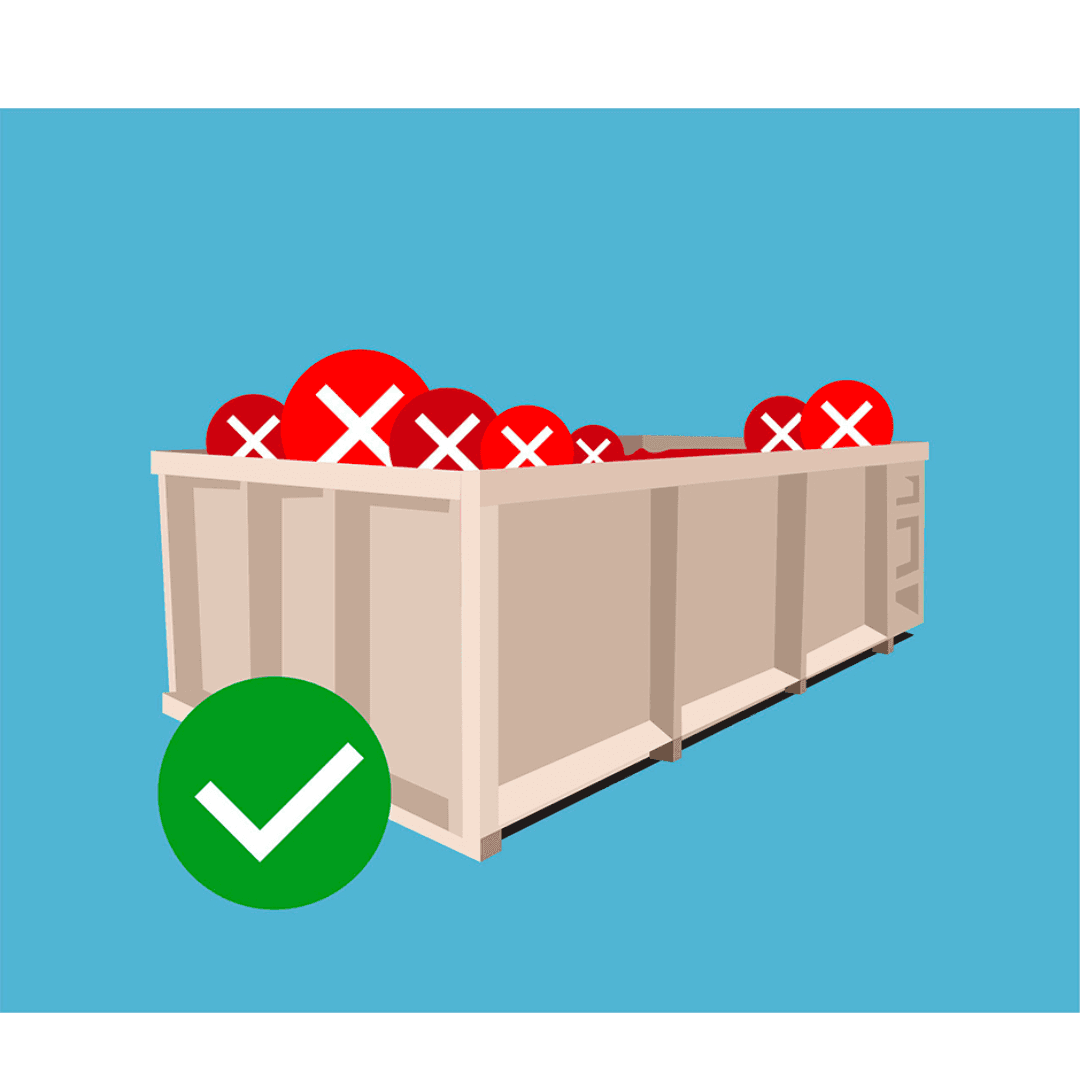Renting a dumpster can be a convenient solution for managing waste during home renovations or clearing out processes. However, it is important to be aware of the restrictions and guidelines when it comes to what can and cannot be disposed of in a dumpster. In this article, we will explore ten items that should not be placed in a roll off dumpster and provide alternative disposal methods for each.
Hazardous Materials
Hazardous materials such as paint, solvents, pesticides, motor oil, and other chemicals should never be dumped into a dumpster. These substances can pose significant risks to the environment, including soil and water pollution. To properly dispose of hazardous materials, it is recommended to take them directly to a hazardous waste disposal facility or check local regulations for specific disposal methods. This ensures that these materials are handled safely and do not harm the environment.
Electronics
When it comes to disposing of electronics like TVs, computers, and smartphones, it is important to consider the potential dangers associated with improper disposal. These devices contain metals and chemicals that can be harmful if they end up in landfills. Instead of throwing them in a dumpster, explore alternative options such as donation, recycling, or participating in an electronics waste collection program. These methods ensure that valuable components are recovered and that the hazardous materials within these devices are properly managed.
Tires
Tires should not be placed in a roll off dumpster due to the fire hazard they pose in landfills. Many dumpster rental companies prohibit the disposal of tires to mitigate this risk. If you need to dispose of old tires, consider taking them to a recycling center or returning them to an auto shop for proper reuse or recycling. These alternatives ensure that tires are properly managed and do not contribute to environmental hazards.
Large Appliances
Large appliances like refrigerators, stoves, and washing machines should not be placed in a dumpster. These items take up significant space and may contain components that should be recycled or donated. Before renting a dumpster, consult local metal recyclers to explore disposal options for large appliances. Additionally, consider donating working appliances to organizations that accept them. This way, you can ensure that these items are properly handled and potentially benefit others.
Batteries
Both car batteries and household batteries should never be disposed of in a dumpster. These batteries contain heavy metals that can leech into the environment if not properly managed. Instead of throwing them in the trash, explore battery recycling programs or drop-off locations in your area. These options ensure that batteries are safely recycled and do not pose a risk to the environment.
Medical Waste
Proper disposal of medical waste is crucial to protect both the environment and public health. Needles, medications, and other medical equipment should never be thrown into a dumpster. It is important to consult your local pharmacy or health department for proper disposal guidelines. These authorities can provide information on safe disposal methods for medical waste, ensuring that it is handled appropriately.
Propane Tanks
Propane tanks should never be placed in a roll off dumpster due to the serious explosion risks they pose in landfills. It is important to find alternative methods for their disposal. Consider taking propane tanks to refill stations or designated drop-off spots that offer safer disposal options. By doing so, you can prevent potential accidents and ensure the safe handling of these tanks.
Fluorescent Bulbs
Fluorescent energy-saving bulbs contain small amounts of mercury, which can be harmful to the environment if released improperly. It is important not to throw these bulbs into a dumpster. Instead, explore special recycling programs or return them directly to a store that accepts them. These options ensure that the mercury within the bulbs is properly managed and does not pose a risk to the environment.
Asbestos
If you are renovating an older home, it is important to be aware of the presence of asbestos. Asbestos is a known carcinogen and requires professional removal services for proper disposal. Most dumpster companies do not accept asbestos waste, so it is crucial to follow the appropriate procedures for asbestos removal and disposal. By doing so, you can protect yourself and the environment from the dangers associated with asbestos.
Liquid Waste
Large volumes of liquid waste, such as oils and grease, should not be disposed of in a roll off dumpster. These liquids can leak and pollute the environment, making waste processing more challenging for dumpster services. It is advisable to find dedicated facilities or recycling methods for the proper disposal of liquid waste. This ensures that the environment is not harmed and that waste is managed effectively.
Consulting Knoxville Dumpster Rental
Before renting a roll off dumpster, it is always wise to consult with Knoxville Dumpster Rental regarding any items of uncertainty. Each dumpster rental company may have its own list of prohibited materials that must be handled according to local regulations and rules. By conducting thorough research and seeking guidance from the rental company, you can ensure eco-friendly and safe disposal methods for specific items. Remember, proper disposal is not just about convenience; it is also about responsibility.
In conclusion, knowing what not to put into a roll off dumpster is crucial for responsible waste management. Hazardous materials, electronics, tires, large appliances, batteries, medical waste, propane tanks, fluorescent bulbs, asbestos, and liquid waste should never be disposed of in dumpsters. Instead, explore alternative disposal methods such as recycling programs, drop-off locations, professional removal services, or dedicated facilities. By following these guidelines, you can protect the environment, public health, and ensure the safe handling of waste.
Book A Free Call
Complete this form and we'll call you back.

